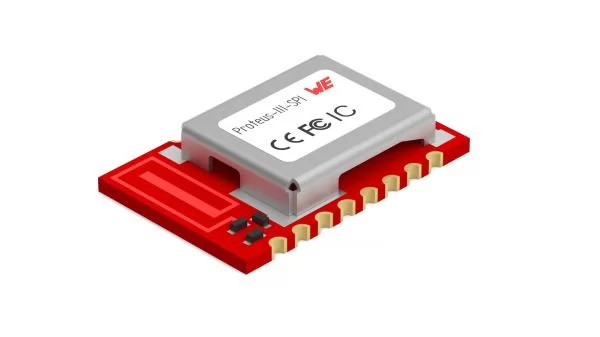Würth Elektronik introduces the Proteus-III-SPI Bluetooth Low Energy 5.1 module. This variant of the tried and tested Proteus-III uses an SPI instead of a UART interface. The new module, based on the Nordic Semiconductor nRF52840 chipset, exploits the possibilities of the Bluetooth Low Energy 5.1 standard—with significantly higher performance.
With a payload of up to 964 bytes, the module offers four times the throughput of most Bluetooth low-energy modules. As the SPI allows a significantly higher data rate than the UART, with 1.5 times the end-to-end data throughput, the SPI variant bypasses potential bottlenecks on the application side.
The Proteus-III-SPI variant—identical in terms of hardware—is the first choice for applications in which no free UART interface is available, or if the data throughput of the UART interface is insufficient. Another advantage: The SPI variant is more power efficient. The integration workload is slightly higher with SPI, but Würth Elektronik provides a convenient wireless connectivity software development kit (SDK) for this task.
With its Bluetooth module, measuring just 8 x 12 x 2 mm, with integrated antenna, encryption technology and six configurable IO pins, Würth Elektronik offers an interesting solution for IoT
Read more: WÜRTH ELEKTRONIK PRESENTS ITS BLUETOOTH MODULE PROTEUS-III-SPI

